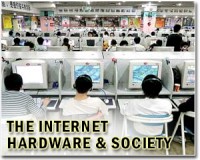 |
Boston (UPI) Jan 11, 2011 Malware, phishing scams and malicious spam originating from U.S. sources have put the United States on top of a global list of countries most responsible for cybercrime activity, electronic security and data protection firm Sophos said in a report. Focused on unwholesome and unwelcome Internet activity in the fourth quarter of 2010, the report said spam was more persistent and dangerous than before. Much of the growing cybercrime concentrated on social networking sites, Sophos said, citing a "Dirty Dozen" list. The United States increased its lead at the top spot and continues to be responsible for nearly 20 percent of all spam messages, said the report. "Regardless of what methods spammers use, Internet users should never be tempted to open a spam message out of curiosity or click on an unknown link just because it appears on a Facebook friend's profile," said Graham Cluley, senior technology consultant at Sophos. The United States' domination of the list underlines the continuing problem of computers being compromised by hackers, allowing them to be remotely controlled for criminal purposes without the owners' knowledge. The Obama administration launched its cybercrime awareness campaign in 2009 and followed it with the appointment of Howard Schmidt, a former Microsoft executive and Bush administration official, as the White House cyber coordinator -- "cyber czar" to the popular media. In a video statement posted on the White House Web site, Schmidt said he would focus on several priority areas to develop a national strategy "to promote cybersecurity, awareness and education." The Sophos report indicated more needs to be done. While the same countries continue to dominate spam output, the spam is becoming more malicious. About 36 million Americans buy drugs from unlicensed online sellers but the greater threat is posed by e-mailed messages spreading malware and cybercriminals trying to phish user names, passwords and other personal information. The top 12 spam-relaying countries cited by Sophos were the Unites States, 18.83 percent; India, 6.88 percent; Brazil, 5.04 percent; Russia, 4.64 percent; the United Kingdom, 4.54 percent; France, 3.45 percent; Italy, 3.17 percent; South Korea, 3.01 percent; Germany, 2.99 percent; Vietnam, 2.79 percent; Romania, 2.25 percent and Spain, 2.24 percent. Other countries accounted for the other 40.17 percent of spam. More recent threats aimed to attack mobile phones and social networks including Facebook and Twitter. "Spam is certainly here to stay, however, the motivations and the methods are continuing to change in order to reap the greatest rewards for the spammers," said Cluley. "What's becoming even more prevalent is the mailing of links to poisoned Web pages -- victims are tricked into clicking a link in an e-mail and then led to a site that attacks their computer with exploits or attempts to implant fake anti-virus software." Taken as continents, Europe topped the list with 32.11 percent, followed by Asia at 31.89 percent; North America at 22.38 percent, South America at 10.25 percent and Africa 2.12 percent. Analysts attributed the low percentages for South America and Africa due to low Internet connectivity. Sophos says more than 100 million users in 150 countries use its products and services against complex threats and data loss. The company has headquarters in Oxford, England and Boston.
Share This Article With Planet Earth
Related Links Satellite-based Internet technologies
 Myspace slashing 500 jobs, nearly half its staff
Myspace slashing 500 jobs, nearly half its staffWashington (AFP) Jan 11, 2011 Myspace announced on Tuesday it was cutting some 500 jobs, nearly half its staff, in a move seen as potentially setting the stage for a sale of the social network owned by Rupert Murdoch's News Corp. "Today's tough but necessary changes were taken in order to provide the company with a clear path for sustained growth and profitability," Myspace chief executive Mike Jones said in a statement. ... read more |
|
| The content herein, unless otherwise known to be public domain, are Copyright 1995-2010 - SpaceDaily. AFP and UPI Wire Stories are copyright Agence France-Presse and United Press International. ESA Portal Reports are copyright European Space Agency. All NASA sourced material is public domain. Additional copyrights may apply in whole or part to other bona fide parties. Advertising does not imply endorsement,agreement or approval of any opinions, statements or information provided by SpaceDaily on any Web page published or hosted by SpaceDaily. Privacy Statement |